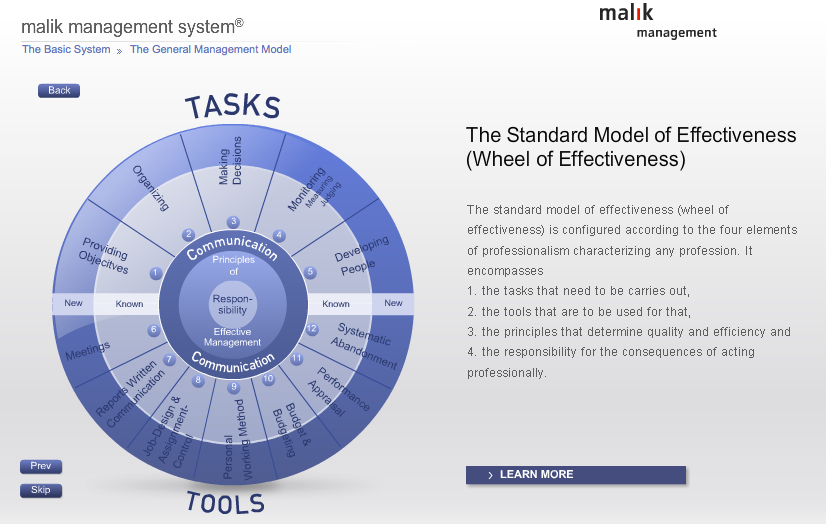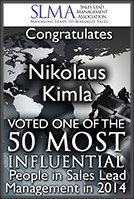Malik Management Approach
So what is management… Really?
Is it just ordering people around and keeping deadlines for goals you set for your team or company? Or is there something more to it?
It is my deepest belief, that the Malik Management Approach answers these questions perfectly and creates a system that can in fact help everyone within it to become an entrepreneur or manager and transform their own individual strengths into a seamless team performance.
Let me explain to you the Malik Management approach in details:
- Holistic Understanding of Management
- Role of Management in Society
- Malik Management Approach
- Fredmund Malik
- Malik Institution
Holistic Understanding of Management
The term holistic is derived from the ancient Greek word “Holos,” which means “all” or “everything.” So, what does holistic understanding of management mean? It means you understand the system you are within as a whole. It is not enough to understand each separate part of this system in a vacuum.
Holistic understanding means to view any system as a complex network of actions and reactions that works towards one result. The quality of this result is based upon the effectiveness of the cooperation between all of the process within the system, rather than effectiveness of each individual process.
The Malik Management Approach is based upon this way of understanding and that is why it delivers real and sound solutions that can be applied to every possible management.
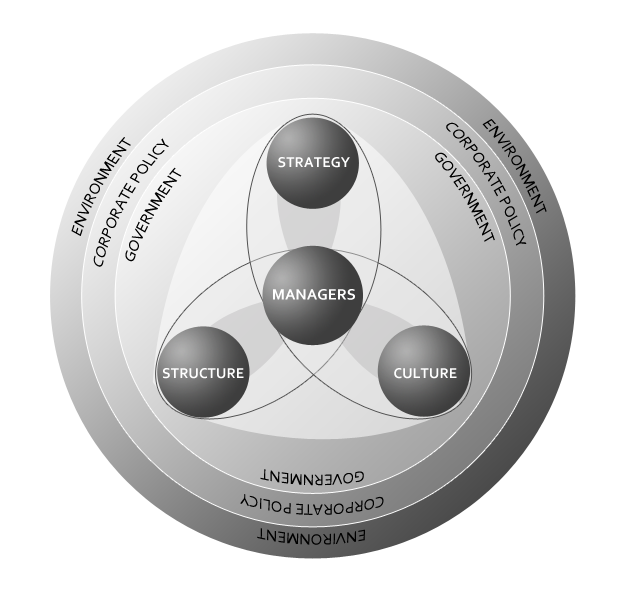
Role of the Managament within Society
Role of Management in Society
Malik Management separates management from the common environment that surrounds this term – finance and the business world. It sees management as a key function within any social organization as well as an aspect of everyday quality of life of most people.
This concept is largely explored within one of Fredmund’s Malik bestselling book „Managing Performing Living” It contains the knowledge and tools that should always be available and ready for use in all organizations – in companies as well as in various other institutions and organizations in society.
Malik Management views Good Management as the social function – one which enables the organizations and systems of a society to function properly.
Malik Management Approach
There are much more people dealing with management and having to handle management tasks in today’s world than any other time in history. The systems we live in are getting more complex and complicated every single day. Without proper skills and knowledge, we are bound to make mistakes that can not only affect our business or career success, but our day-to-day life.
Management is definitely more than just ordering people around. It is even more than knowing everyone’s name and leading by example.
- Management is the moving force that allows people to reach a common goal sharing work and knowledge.
- Management is the organ of leadership in social systems and institutions – from business enterprises, to universities, cities and all other organizations.
- Management has to give direction to the organization based upon the set goals and be able to adjust its objectives and process accordingly. It has to organize the resources to match the requirements of the given objectives and goals.
[youtube:http://www.youtube.com/watch?v=CX7m8J-rGDc 500]
Video: Watch on YouTube
Management as a System
One of the biggest challenges of management is to follow and handle the increasing complexity of the systems and social organizations. With its importance and impact, we can compare management to the operating system of a computer. Prof. Malik understands management as an “operating system” capable of evolving and matching any organization of any size and type.
Within this “operating system” every person has a space tailored for his or her individual abilities and skill that does not just allow them to work towards a common goal, but also allows them to function as an entrepreneurs.
Managament as a Skill
Managers or executives are the ones who embody the social function of management and practice it as a profession. Part of this is to do the right thing for an organization and to do it well. That is why the Malik Management Approach sees management as the profession of effectiveness in complex systems. This sets managers apart and requires them to use more than just financial resources – also talent, intelligence, creativity, information, knowledge and insights are transformed into results.
“Management must be learnt just like any other profession, a foreign language or a type of sport. Management is not simpler or easier than these and it must therefore be practiced. However, neither is it more difficult and anyone can achieve a certain degree of competence, higher than that of an amateur, and many can become highly professional. The fact that there are people who have more of a talent for management than others does not alter the possibility or the necessity of learning management. Related to this is the need of criteria and standards, such as have been developed by every profession. However, in management these are practically non-existent to date.”
– Fredmund Malik
The Great Transformation21
One of the newest concepts within the Malik Management is the theory that the financial crisis, that was at its peak in 2011 is not just a depression, but is in fact a huge social transformation process happening on a global scale.
The world of socialism and capitalism are coming to an end and new world and new way of thinking is slowly emerging.
Creating the term “humane functionism” that is redefining the role of people within this new world of economics and frees them from the conceptual prison of the old polarity of capitalism and communism.
 Fredmund Malik
Fredmund Malik
Is a known expert for Complexity Management, Governance and Leadership that authored and researched many topics within his field of expertise. His theories and new ways of thinking were implemented all around the world in many different aspects of business, industry and other types of organizations. Thanks to his work top leaders were empowered to master complexity and the dynamic new challenges of the 21st century. His innovative tools apply where conventional management stops.
In 1984 Malik published his first classic on system-cybernetic management, Strategy of the Management of Complex Systems. It was the same year he founded the Malik Institute in St. Gallen which he heads as Chairman and CEO. The Institute has been among the leading knowledge organizations for cybernetic thinking and management solutions ever since.
His work is very well received within academic circles as he was Professor for General Corporate Management, Governance and Leadership at the University of St. Gallen, Switzerland (1974 – 2004), and a Guest Professor at the Vienna University of Economics and Business (1992 – 1998). And earned both his doctorate and habilitation in system-cybernetic corporate management.
Publications
Fredmund Malik, the founder of Malik Management Approach, or Malik Approach is a known writer and entrepreneur and is author of many successful books and publications.
- Maucher and Malik on Management 2013
- Managing Performing Living 2006, 2012
- Series: “Management: Mastering Complexity,” volume 1-3
- The Right Corporate Governance 2012
- Uncluttered Management Thinking 2011
- Bionics – Fascination of Nature 2007
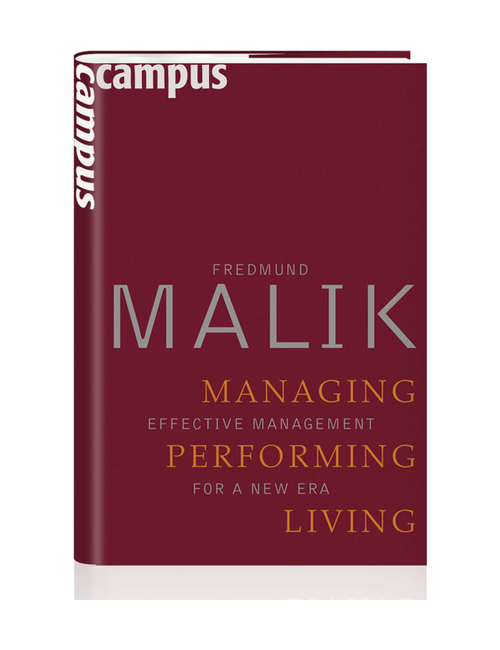 Managing Performing Living
Managing Performing Living
This book became a bestseller quickly after it was released in 2006 and was voted one of the top 100 business books in 2011.
It offers sound and proven tools and professional advice for successful management in any organization. Malik underlines improving of skills within the organization, decision-making, supervising, budgeting, and numerous other management-related tasks. Even though this book is highly regarded within the business world, it is not written just for business and industry managers – it helps students of management, public and university administrators, and executives in other types of organizations. It can be used independently or as a companion volume to Malik’s Management: The Essence of the Craft.
“Managers who want to come to a critical review of their management behavior and management system will find no other book that is more stimulating.”
– Manager magazine, Austria
“The management professor introduces techniques for preparing sound decisions, quantifying objectives, optimizing the development of staff, and replacing a failing war on many fronts by a few powerful projects.”
– Die Zeit
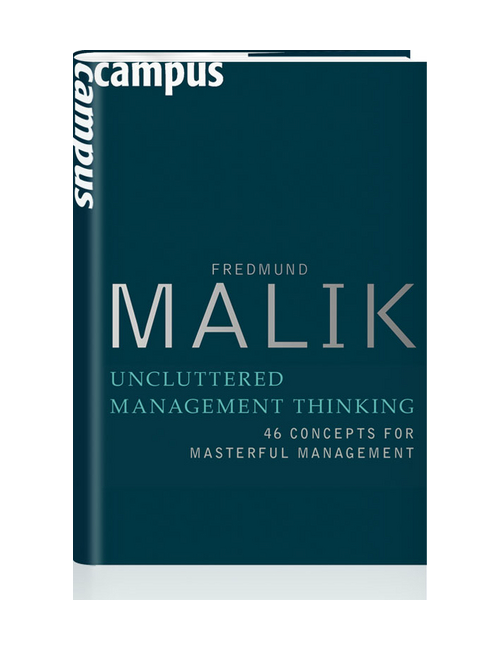 Uncluttered Management Thinking
Uncluttered Management Thinking
The communication is what drives the organization forward and it is also one of the most important skills a successful manager must wield. Our language is in fact one of the foundations of abstract thinking and problem solving. In this book, Malik explores problems that can arise from wrong and cluttered language in management.
Unprofessional and inaccurate definition of terms within the organization can lead to many unforeseen problems and bad management.
Fredmund Malik offers detailed analysis of the psychological, management, and economic errors managers tend to make, and explains how such errors can be avoided. For clear language is a key to right and good management.
“Malik demonstrates how, in extreme cases, the wrong use of fashionable terms can even lead to entrepreneurial disaster.”
– Wirtschaft & Markt
Malik Institute
Founded in 1984 by Fredmund Malik himself, Malik Institute developed gradually to reach large proportions of one of the world leaders in management with offices in St. Gellen, Zurich, Berlin, Vienna, Bejing, Toronto and London.
It main task is to spread the ideas and philosophies of its CEO – Fredmund Malik. With deep understanding of the world of management it helped to tailor-tail management systems and organization structure for many successful and world-wide businesses and industries.
I hope I helped you to better understand Malik Management Approach.

